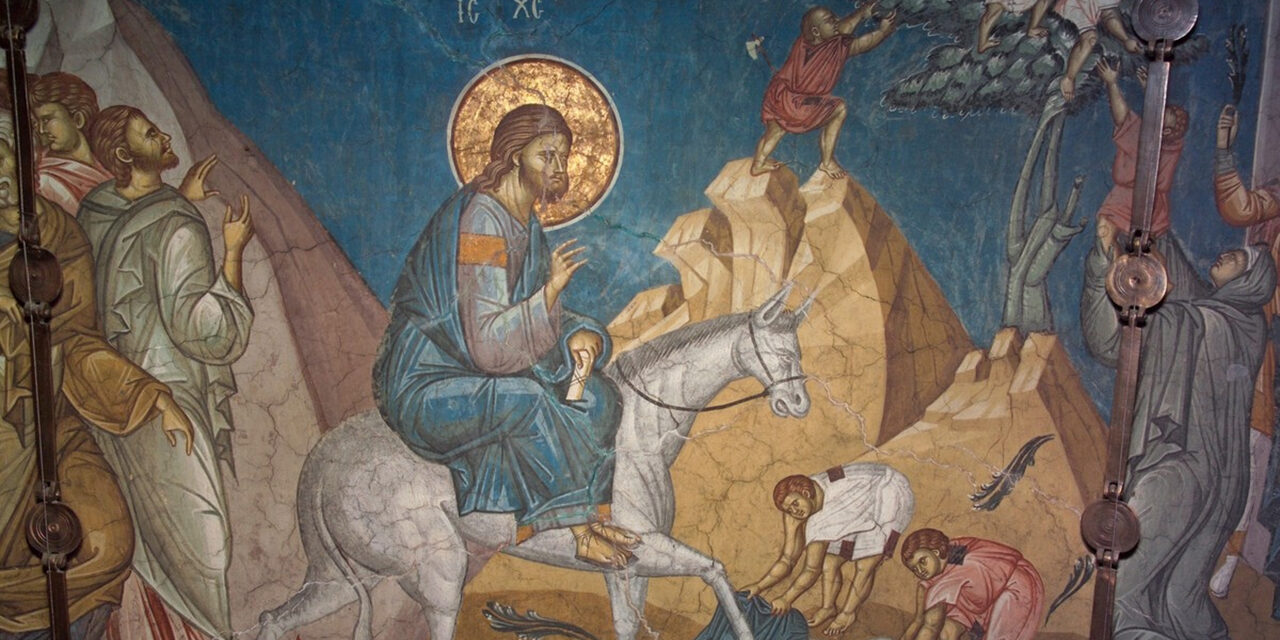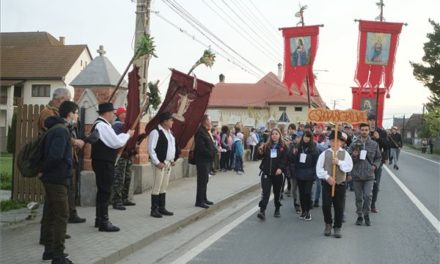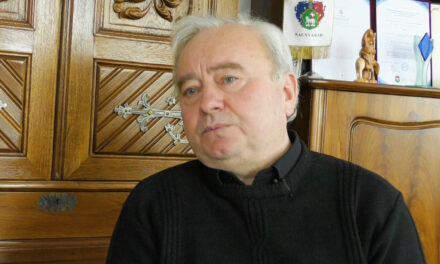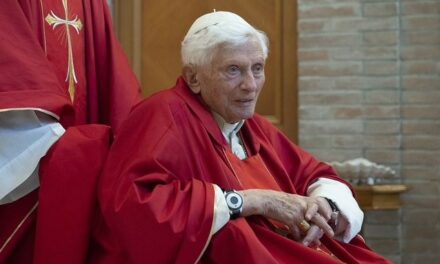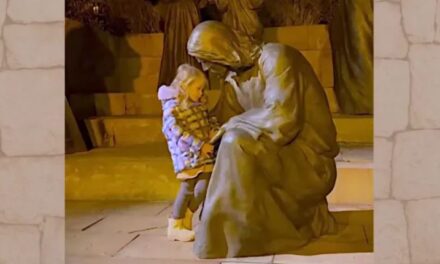Here I stand in Potsdam, the Calvinist city of the German, French, and Dutch reformers, shining in a strange light, full of castles, full of green and even clear water surfaces. In front of me was a memento of religious solidarity, the classicist, Puritan church of the French-German congregation. With Palm Sunday Words in my heart.
And in the almost suffocating gold-decorated gallery of the amazing palace empire of Sanssoucci, my eyes are dazzled by dozens of works of art by Caravaggio, van Dyck, Rembrandt, Rubens, Watteau and other painting giants in the gallery. As a contrast to this, the "Black Flower Sunday" work by the German painter Hans Jaenisch, created in 1950 by the cubist artist who experienced the horrors of war, immediately jumps into my memory. It is a picture of an entry that is more real than any classical representation of art treasures. The barely outlined figure of the Master on the back of a fragmented donkey between cubist, geometric forms. It is devoid of all illusions, devoid of earthly-heavenly illusions, and is therefore impressive and explodes associations.
Here, in the almost unrealistically peaceful and majestic atmosphere of Potsdam's special Palm Sunday, this procession depicted in dark colors seems to be heart-wrenchingly truer. It recalls the completely different march, due to which around 20,000 persecuted French reformed believers found a new homeland, a new church, and a new brotherly community here in this Calvinist city of refuge, thanks to the kindness and solidarity of the reformed princes who had accepted the Huguenots and their culture for four hundred years. The solidarity of the Calvinist faith, the community of life-saving destiny.
And this is where the picturesque vision and visual prophecy of the realist dark Palm Sunday evokes the many millions of today's refugees who, in the flood of blood, suffering and tears, in the drift of fear, not because of the threat of their faith, but of their mere existence, left their homes running for survival - terrible, but not only in Ukraine!
I also think of them in my prayers, and that the Prince of Peace will finally bring the hope and peace potential of reconciliation, insight, and common sense to our land. Let the black flower Sunday become a colorful and slightly more carefree start to Holy Week.
A black cloud is looming over there - not only over Ukraine in 2023, but also over the whole of Europe. Once upon a time, that black cloud also rolled over Jesus, the son of David, entering the city of light, Jerusalem, on a donkey. In order to make our holiday a holiday despite everything, let's read the stories of the procession of the Gospels, at least one of them (Matthew 21:1-10; Mark 11:1-11; Luke 19:28-38; John 12:12-19).These enlistment stories will certainly make our thoughts go to our knees. First of all, listening to Jesus calms me down. He only says that the disciples should go to the city to get the tied donkey and bring it to him. He quotes Isaiah's and Zechariah's concurring prophecies about the humble figure of the king sitting on the back of a donkey. He sits on the donkey in silence. The Proverbs evoke the excited celebration of the multitude, the street scene of the hoped-for realization of political dreams, but also the question of astonishment: Who is this? (Matthew 21:10). He takes everything without saying a word.
As if walking on a sea of glass (Pilinszky), he jogs into the holy city carefully, without waving his hand. Because He already knows everything. That in a few days, the same celebrating crowd will shout "Crucify me" on the Via Dolorosa.Those who celebrate now by spreading palm branches and their outer garments in front of him, will soon tear away from him the remaining dignity of his sonship, spit on the pure humanity of the Ecce Homo, pointing their fingers at his figure falling while being carried on the cross. The mob, the crowd, showed its true nature there and then: manipulability, instability, mere circus and bread, not the raw need for truth. He revealed his essence once and for all: the word of the people is indeed only the word of God in the rarest of cases. There, at the first and only entry into Jerusalem, everything was revealed: the silence of God, as the paternal gaze accompanies Him in sympathy with His Son through the false crowd illusions and appearances towards the cross. The determination of Jesus was also revealed: seeing beyond the hallelujah people and seeing the cross, but also the reality of the resurrexit tertia die (Pilinszky), he continued his journey with silent determination. Even his donkey could feel this huge vertical heaviness pulling on the ground and the divine silence preparing for lifting up to the sky and resurrection. It is not recorded that he would have been restless or that his unseemly ass-shaking would have profaned the divine silence of Jesus.
Here I stand in the fresh spring wind, in the aura of 21st century Potsdam, reflecting clear water mirrors, fountains, palaces and Calvinist simplicity, transparency, clean lines and clear thinking behind it. In its peculiar celestial and historical brilliance. I deeply understand and feel the visual prophetic power of Jaenisch's dark entry image on Palm Sunday. He did not put illusions, not a quickly suffocating crowd atmosphere, or a heavenly reflection on canvas.
But Jesus, who went despite everything and went all the way - because that was the only way he could complete the unique, one-time and universally important work of world redemption. And to open the way for the only worthy procession: the salvation leading to the heavenly Jerusalem.I hum Paul Gerhard's song to myself and bow my head here in front of the French-Reformed cathedral in Potsdam. With the sincere respect and gratitude of a pilgrim Hungarian Calvinist. Above all, with a heart surrendering to the HOPE OF THE WORLD.
How should I receive you, Hope of the World? How can I greet your light, How can I hurry to meet you? Oh, dear Jesus, please, show yourself, what you are dear to me, and how I am waiting for you!
What prompted us to leave the heavens and assume our humanity? The savior is love! The whole wide world And its many wounds and troubles, What your mercy saw well, You embrace like this.
Carve this deep in your heart, You grieving host! On a starless night Dawn is coming! Don't be discouraged, Your help is standing at your door, And will comfort you, If you let him in.
He will come again: you will judge the living and the dead. He who trusts in him is not afraid, He gives him grace. Get up, our beautiful day, we are waiting! Take me to your country, Where we will forever be blessed With a new song of thanksgiving!
Source and full article: Dr. Lajos Békefy/Felvidék.ma
Featured image: Wikipedia/illustration

